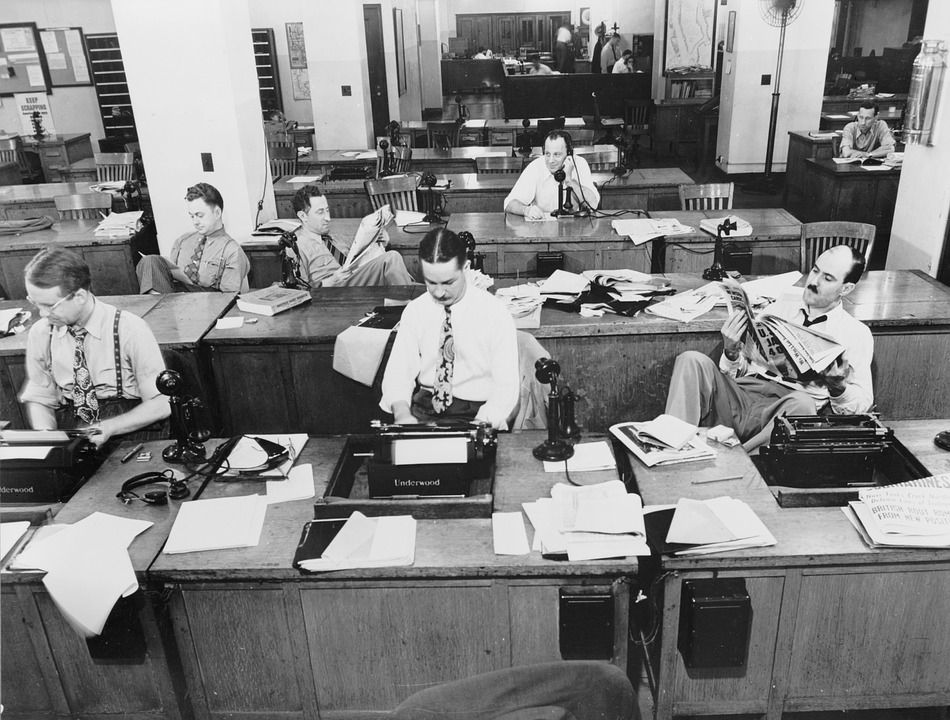It is a pivotal time for the news industry. Due to the 24/7 and increasingly accessible nature of news, the world now insists on a constant stream of reportage throughout the day. This has allowed for a significant lapse in research and fact checking. Thus, reliability has become a serious issue in today’s media. It is unrealistic for journalists to be constantly churning out dependable stories at this rate, often resulting in a loss of trust between reporter and reader.
While global news has undoubtedly gone through extreme change in the past 10 years, there is no reason to say that there cannot be advantages that come with the demand for constant access to the latest stories. This is the global age for journalism. There are more news sources and readers who are far better informed than ever before.
Indeed, it is arguable that the unreliability of the news industry has advanced the scepticism of its’ readers. There was a time when readers took what they read as fact, rarely questioning the reliability of the sources, or considering the possible bias of the writer. Yet, now readers are becoming more inquisitive, and reaching conclusions based on more than just a glimpse of an article. These positives in the new age of media, demonstrate a clear demand for a better, more sophisticated form of news. Through this change there is a chance for an exciting opportunity.
Different forms of media are getting better at innovating. As well as the traditional forms of media (television and print) others are becoming more advanced and refined. Publications like magazines are changing to become more sophisticated, informed news outlets.
Yet this constant news and its lack of reliability does more to polarise it from investigative journalism. The skill sets needed in creating these two types of news are entirely different. Where daily news necessitates constant deadlines, and an inevitable lack of information, investigative journalism allows you the time to build up every piece of research needed in creating a complete picture.
Rachel Oldroyd, the Founding CEO of the Bureau of Investigative Journalism, discussed the progress her and her team were attempting to make in modern day media, also describing how investigative journalism differed strongly from daily news, and how vital it is in the current climate.
Rather than complying to the demands of society, and the issues that occupy them, the bureau, and investigative journalism in general uncover topics that no one is aware even exists. Oldroyd also outlined its attempt to write for public interest: holding powers to account and aims for change. The Bureau’s tagline to entice donations is ‘we tell stories that matter.’
An example of a story which the Bureau uncovered is its piece on the fertility decline in Malawi due to the overuse of antibiotics. Hysterectomies had been being carried out at an unusually high rate because of infected caesarean section incisions. This demonstrates how important this kind of reporting is and the time it takes to uncover stories of this calibre.
Oldroyd explained in her talk how the qualities needed in investigative journalism differ significantly from 24 hour news reporting, valuing facts and details presented in an unbiased and clear way far more than other media sources. Creating impartial, fact based news stories requires skills that stretch beyond receiving information and moulding it to fit your audience.
In investigative journalism Oldroyd described the importance of understanding that everyone you interview has a reason to talk to you, and the need to always ask the question ‘Why are you telling me this?’. This demands a need to talk to every side and determine the truth beneath all the different objectives.
This is not to say one form of media is superior to the other. There are positive attributes and aspects to the 24 hour journalism such as its constant distribution of the global news to interested readers. However, its inconsistency in reliability does require this unbiased, research based form of journalism to become more prominent. This is what the Bureau of Investigative Journalism attempts to provide and champion: a place where important, untold stories are given a platform to re-establish the trust between the reader and reporter.
Image: Janeb13 via Pixabay

